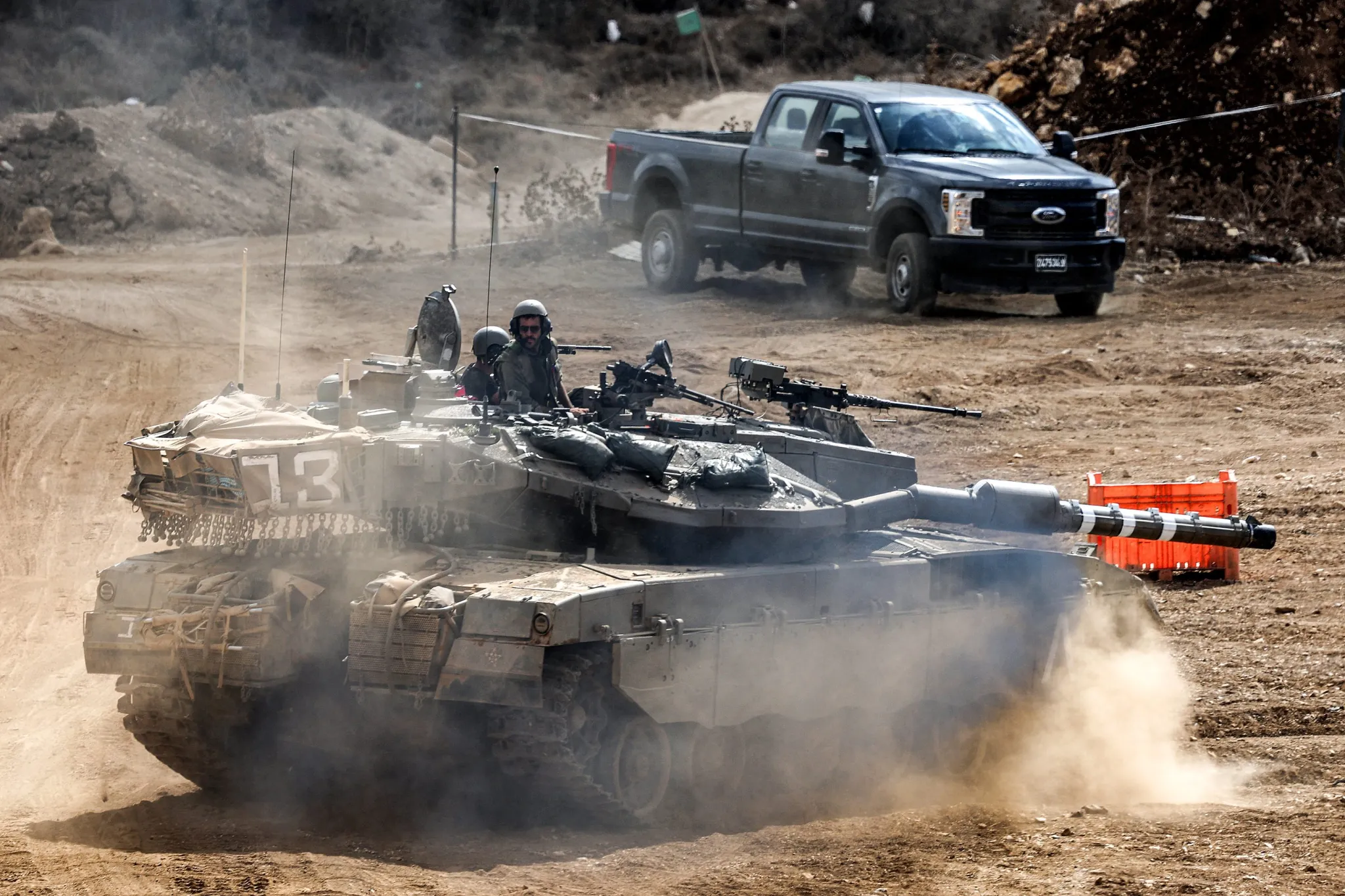An Israel-Iran war of attrition will be the new reality for a long time, scholar says
As Israel weighs how to retaliate against Iran’s most recent barrage of missiles, the conflict looks like it will persist as the new normal, according to an expert on Mideast security.
After Tehran launched hundreds of missiles and drones in April, Israel responded with airstrikes on defense systems at an Iranian airbase. Iran’s attack on Tuesday is expected to draw, at the very least, a response on a similar scale.
The Israeli leadership is under a huge amount of domestic political pressure to strike Iran’s nuclear capabilities, which are seen as an existential threat, Carmiel Arbit, Atlantic Council Middle East programs senior fellow, told Bloomberg TV on Thursday.
But the U.S. is pushing Israel to take lesser steps, like targeting Iran’s oil industry, she added. Cyber attacks could also be possible, similar to the Stuxnet virus that struck Iran’s nuclear facilities two decades ago.
Still, Arbit also said Israel is eager to re-establish deterrence, meaning a military threat that would make Iran think twice about attacking again.
The longer-term outlook is for the regional conflict to keep simmering as global powers look to contain rather than totally defuse the situation.
“I think we are going to be looking at this as the new reality for a long time,” Arbit predicted. “I think the question is simply going to be how often is the tit for tat going to happen, and is it just going to be tit for tat, or is this going to escalate only further. And I think the hope of the international community at this point is to avert a World War III rather than this smaller-scale war of attrition.”
Michael O’Hanlon, the Philip H. Knight chair in defense and strategy at the Brookings Institution, wouldn’t rule out an Israeli attack on Iran’s nuclear facilities but also thinks the more likely target will oil infrastructure.
But given that Iran’s missile attacks have largely been thwarted, Tehran’s next retaliation against Israel may not be against the country itself, he told Bloomberg TV on Friday.
For example, closing off the Strait of Hormuz, a critical chokepoint in the global oil trade, is possible and would hurt the whole world economy and the U.S. in the process.
To be sure, the U.S. could clear in a matter of weeks any underwater mines from the strait that block oil tankers from passing through. But that wouldn’t be the end of it.
“And even after that point, you might have a state of low-rate ongoing hostilities with some chance of oil tankers still being hit, even once we’ve reopened things,” O’Hanlon said.
Iran may consider that option even if it goes against its interests by preventing its own oil exports from reaching international markets, he added. That will depends on how hard Israel hits Iran.
“If Israel really shuts down the Iranian oil economy, then Iran has no reason to tolerate the rest of the world using the Strait of Hormuz,” O’Hanlon warned.
On the other hand, a more limited strike could keep Iran seeking a cease fire, he said. President Joe Biden’s efforts to de-escalate may come up short as the history of U.S.-Israel relations shows that Washington’s influence is limited, O’Hanlon added.
Ian Bremmer, president of political risk research and consulting firm Eurasia Group, wrote in a weekly note Friday that the past month has demonstrated Israel’s military dominance in the region.
“Israel—and specifically Prime Minister Netanyahu—is in a stronger geopolitical position today than has been in months and will be interested in seizing the moment to reduce Iranian threats,” he said.




